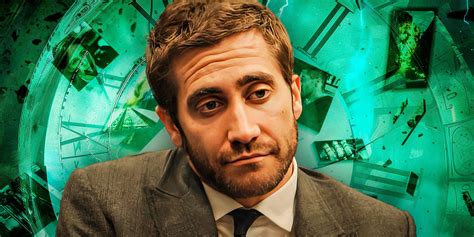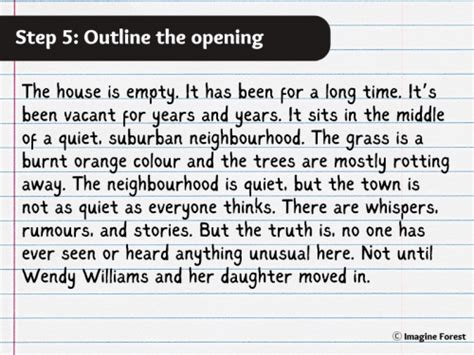
Jake Gyllenhaal’s critically acclaimed science fiction thriller, “Source Code,” is slated to exit Netflix at the end of June, giving subscribers a final opportunity to stream the mind-bending film before it disappears from the platform. With a 92% rating on Rotten Tomatoes, the movie has garnered significant praise for its innovative plot, Gyllenhaal’s performance, and its blend of action and suspense.
“Source Code,” directed by Duncan Jones, presents a complex narrative involving Captain Colter Stevens (Gyllenhaal), a U.S. Army helicopter pilot who finds himself part of a highly classified military operation. Stevens is tasked with repeatedly reliving the last eight minutes of a man’s life on a commuter train just before a devastating terrorist bombing. His mission is to identify the bomber and prevent a second, even more catastrophic attack on Chicago.
The film’s concept, praised for its intricate plot twists and philosophical underpinnings, revolves around the “Source Code,” a revolutionary technology that allows Stevens to inhabit the body of another person in the moments leading up to their death. Each time Stevens relives those eight minutes, he gathers new clues, faces new challenges, and inches closer to uncovering the bomber’s identity. Vera Farmiga and Michelle Monaghan co-star, adding depth and complexity to Stevens’s harrowing journey.
“’Source Code’ isn’t just another sci-fi thriller; it’s a smart, suspenseful, and emotionally engaging film that keeps audiences guessing until the very end,” noted several film critics, underscoring its lasting impact and appeal. The film’s critical success and audience reception have solidified its status as a must-watch for fans of the science fiction genre.
As “Source Code” prepares to depart from Netflix, viewers have a limited time to experience its unique blend of suspense, action, and thought-provoking themes. Its departure serves as a reminder of the fleeting nature of content availability on streaming platforms, urging viewers to catch it before it’s gone.
The Plot Unveiled
“Source Code” opens with Captain Colter Stevens abruptly awakening on a commuter train heading towards Chicago. Disoriented and confused, he finds himself in the body of a schoolteacher named Sean Fentress. Christina Warren (Michelle Monaghan), sitting across from him, clearly knows him as Sean, further adding to Stevens’s bewilderment.
Moments later, the train explodes in a massive terrorist attack. Stevens then wakes up in a confined capsule, where he is greeted by U.S. Air Force Captain Carol Goodwin (Vera Farmiga), who informs him about his mission. He is part of the “Source Code” program, a highly experimental technology that allows him to enter a parallel reality constructed from the memories of a deceased person.
Each time Stevens enters the “Source Code,” he relives the same eight minutes leading up to the explosion, inhabiting Sean Fentress’s body. Captain Goodwin and Dr. Rutledge (Jeffrey Wright), the creator of the “Source Code,” task him with identifying the bomber responsible for the attack. With each iteration, Stevens gathers more information, encountering different scenarios and developing a deeper connection with Christina.
As Stevens repeatedly relives the train explosion, he begins to question the true nature of his mission and the capabilities of the “Source Code.” He discovers that the technology is not merely a simulation but a means of creating alternate realities. Driven by a desire to save Christina and prevent the impending second attack on Chicago, Stevens becomes increasingly determined to break free from the confines of his mission and alter the course of events.
The film expertly blends elements of science fiction, action, and suspense, creating a captivating narrative that keeps audiences on the edge of their seats. Gyllenhaal’s performance is particularly noteworthy, as he portrays Stevens’s confusion, determination, and emotional growth with remarkable depth. The supporting cast, including Farmiga and Monaghan, adds further layers of complexity to the story, enhancing the film’s overall impact.
Critical Acclaim and Audience Reception
“Source Code” has received widespread critical acclaim for its innovative plot, strong performances, and thought-provoking themes. The film currently holds a 92% rating on Rotten Tomatoes, with critics praising its originality and execution.
Roger Ebert, the late renowned film critic, gave “Source Code” a positive review, describing it as “an ingenious thriller” that “raises intriguing questions about identity and reality.” He lauded Gyllenhaal’s performance and praised the film’s ability to keep audiences guessing until the very end.
“The New York Times” also praised “Source Code” for its clever premise and suspenseful execution, noting that “the film manages to be both intellectually stimulating and emotionally engaging.” The review highlighted the film’s exploration of complex themes, such as the nature of time, memory, and free will.
Audiences have also embraced “Source Code,” with many praising its originality and entertainment value. The film has garnered a large following among science fiction fans, who appreciate its intelligent plot and thought-provoking themes. Its success at the box office further solidified its status as a critically and commercially successful film.
Duncan Jones: The Director’s Vision
“Source Code” is directed by Duncan Jones, the son of the late musician David Bowie. Jones has established himself as a talented and innovative filmmaker, with a penchant for science fiction and complex narratives. His previous works, including “Moon” (2009) and “Mute” (2018), have also garnered critical acclaim for their originality and thought-provoking themes.
Jones’s direction in “Source Code” is particularly noteworthy for its ability to create a sense of tension and suspense. He masterfully uses visual effects and editing techniques to convey Stevens’s disorientation and confusion, immersing the audience in his experience. Jones also explores the philosophical implications of the “Source Code” technology, raising questions about the nature of reality and the consequences of manipulating time.
“I was drawn to the script because it presented a unique opportunity to explore complex themes in a visually exciting way,” Jones said in an interview. “I wanted to create a film that would not only entertain audiences but also make them think about the nature of reality and the choices we make.”
Jones’s direction, combined with the strong performances of the cast, has made “Source Code” a standout film in the science fiction genre. His ability to blend suspense, action, and thought-provoking themes has solidified his reputation as a talented and visionary filmmaker.
Jake Gyllenhaal’s Performance
Jake Gyllenhaal delivers a compelling performance as Captain Colter Stevens, portraying his character’s confusion, determination, and emotional growth with remarkable depth. Gyllenhaal’s ability to convey Stevens’s internal struggles makes him a relatable and sympathetic protagonist, drawing audiences into his harrowing journey.
Gyllenhaal’s performance has been widely praised by critics, who have noted his ability to capture the nuances of Stevens’s character. “Gyllenhaal is excellent as Stevens, conveying his confusion and determination with equal skill,” wrote one critic. “He brings a sense of humanity to the role, making Stevens a character that audiences can root for.”
Gyllenhaal’s commitment to the role is evident in his physical and emotional preparation. He underwent extensive training to prepare for the film’s action sequences and worked closely with director Duncan Jones to understand the complexities of Stevens’s character. His dedication to his craft has resulted in a performance that is both captivating and believable.
The Supporting Cast
Vera Farmiga and Michelle Monaghan deliver strong supporting performances, adding depth and complexity to the story. Farmiga plays Captain Carol Goodwin, Stevens’s handler and confidante. She provides him with guidance and support throughout his mission, while also grappling with her own ethical dilemmas.
Monaghan plays Christina Warren, the woman Stevens meets on the train. Their connection deepens with each iteration of the “Source Code,” adding an emotional layer to the film. Monaghan’s performance is both charming and vulnerable, making Christina a character that audiences care about.
The supporting cast, including Jeffrey Wright as Dr. Rutledge, also contributes to the film’s overall success. Their performances enhance the film’s themes and add further layers of complexity to the story.
Themes and Interpretations
“Source Code” explores several complex themes, including the nature of time, memory, and free will. The film raises questions about the possibility of altering the past and the consequences of manipulating time. It also examines the role of memory in shaping our identity and the impact of trauma on our perception of reality.
One of the central themes of “Source Code” is the concept of alternate realities. The film suggests that the “Source Code” technology allows Stevens to create new realities, where different outcomes are possible. This raises questions about the nature of reality and the extent to which we have control over our own destinies.
The film also explores the theme of redemption. Stevens is given a second chance to make amends for his past mistakes and to save the lives of others. His journey through the “Source Code” allows him to confront his own demons and to find meaning in his life.
“Source Code” has been interpreted in various ways, with some viewers seeing it as a commentary on the nature of war and the sacrifices made by soldiers. Others view it as a meditation on the human condition and the search for meaning in a chaotic world. Regardless of one’s interpretation, “Source Code” is a thought-provoking film that raises important questions about our place in the universe.
The Science Behind the Fiction
While “Source Code” is a work of science fiction, it draws inspiration from real-world scientific concepts. The film’s premise is based on the idea of parallel universes and the possibility of traveling through time. While these concepts are still largely theoretical, they have been explored by scientists and philosophers for decades.
The “Source Code” technology is presented as a way to access the memories of a deceased person. This concept is based on the idea that memories are stored in the brain in a way that can be accessed and replayed. While scientists have made progress in understanding how memories are formed and stored, the technology depicted in “Source Code” is still far beyond our current capabilities.
The film also explores the concept of quantum mechanics, which is a branch of physics that deals with the behavior of matter at the atomic and subatomic levels. Quantum mechanics suggests that the universe is not deterministic but rather probabilistic, meaning that there are multiple possible outcomes for any given event. This idea is reflected in the film’s depiction of alternate realities.
While the science in “Source Code” is speculative, it is grounded in real-world scientific concepts. The film’s ability to blend science and fiction makes it a compelling and thought-provoking work of art.
Legacy and Impact
“Source Code” has had a lasting impact on the science fiction genre, inspiring other films and television shows that explore similar themes. The film’s innovative plot and thought-provoking themes have made it a favorite among science fiction fans.
“Source Code” has also been praised for its ability to appeal to a wider audience. The film’s blend of suspense, action, and emotional depth has made it accessible to viewers who may not typically be drawn to science fiction. Its success at the box office and its positive critical reception have solidified its status as a mainstream hit.
The film’s themes and interpretations continue to be discussed and debated by critics and audiences alike. “Source Code” has become a cultural touchstone, sparking conversations about the nature of reality, the power of memory, and the possibility of redemption.
As “Source Code” prepares to leave Netflix, viewers have a final opportunity to experience its unique blend of suspense, action, and thought-provoking themes. Its departure serves as a reminder of the fleeting nature of content availability on streaming platforms, urging viewers to catch it before it’s gone. Its enduring appeal suggests that its influence will continue to resonate for years to come.
FAQ about “Source Code” Leaving Netflix
1. Why is “Source Code” leaving Netflix?
Streaming licenses for movies and TV shows are often temporary agreements between the streaming platform and the content owners. These agreements have expiration dates. In the case of “Source Code,” Netflix’s licensing agreement is coming to an end, which means the film will no longer be available on the platform after June. The specific reasons for not renewing the license can vary, including cost considerations, the content owner’s decision to stream it on their own platform, or other strategic decisions.
2. When exactly will “Source Code” be removed from Netflix?
The exact date “Source Code” will be removed from Netflix is at the end of June. Netflix typically removes content at the end of the month, so viewers should plan to watch it before the end of the month.
3. Where else can I watch “Source Code” after it leaves Netflix?
After “Source Code” leaves Netflix, it may become available on other streaming platforms or for purchase/rental on digital storefronts such as Amazon Prime Video, Apple TV, Google Play, or Vudu. Availability may vary depending on your region. Additionally, you can check if your local library offers the film on DVD or Blu-ray.
4. What is “Source Code” about?
“Source Code” is a science fiction thriller starring Jake Gyllenhaal as Captain Colter Stevens, a U.S. Army helicopter pilot who is thrust into a top-secret military operation. He is tasked with repeatedly reliving the last eight minutes of a man’s life on a commuter train just before it’s bombed. His mission is to identify the bomber and prevent a second attack on Chicago. The film explores themes of time travel, alternate realities, and personal redemption.
5. Is “Source Code” worth watching?
Yes, “Source Code” is widely considered a must-watch for fans of science fiction and thriller genres. With a high rating of 92% on Rotten Tomatoes, the film has been praised for its innovative plot, strong performances by Jake Gyllenhaal and the supporting cast, and its thought-provoking exploration of complex themes. It’s a suspenseful and emotionally engaging film that keeps audiences guessing until the very end.









